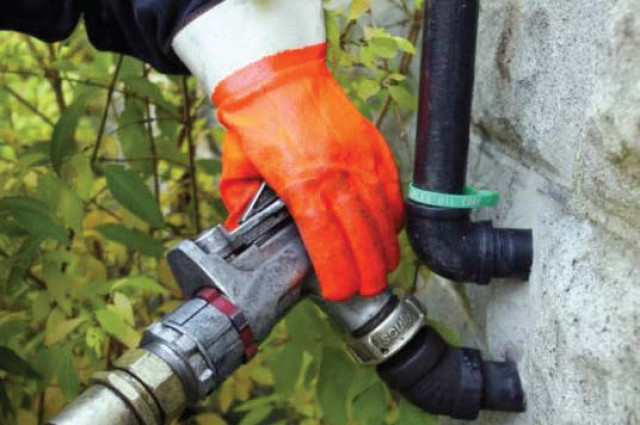Oil and gas theft: Bill proposing strict punishment to be tabled
Petroleum ministry recommends up to 14-year prison term and Rs10m fine.

Oil and gas theft: Bill proposing strict punishment to be tabled
The Ministry of Petroleum and Natural Resources will table a draft bill in parliament at the start of next month, seeking to make oil and gas theft a non-bailable offence with maximum jail term of 14 years and fine of Rs10 million for those tampering with main oil and gas pipelines.
“The cabinet has approved a law and I will introduce a bill in parliament on October 3, proposing imprisonment of 14 years for a person involved in tampering with major oil and gas pipelines,” Petroleum Minister Dr Asim Hussain said, while briefing a National Assembly standing committee on petroleum and natural resources here on Tuesday.
In case of tampering with distribution pipelines, maximum prison term for the offender will be 10 years and fine will be up to Rs3 million.
In other cases of oil and gas theft, the government will be empowered to enforce a fine of up to Rs1 million and give a prison term of up to three years to industrial and commercial consumers and six-month imprisonment and fine of up to Rs10,000 to domestic consumers.
According to estimates, gas theft causes a loss of Rs20 billion per year while oil theft results in a loss of Rs18 billion a year.
“The law ministry has vetted the draft,” Hussain said, adding at present there was no law to take strict action against any person involved in gas theft.
He said the rise in international oil prices and depreciation of the rupee against the dollar would definitely lead to an increase in prices of petroleum products in the domestic market. “As we have to keep a difference of 45 per cent between prices of petrol and compressed natural gas (CNG), a rise in petrol price will also push up CNG rates,” he said.
Gas outages to continue
Hussain declared that gas outages would continue for another two to three years, adding gas supply to new towns would add to the burden of domestic consumers.
He said the petroleum ministry was working on a revised gas outage plan in consultation with Sui Northern Gas Pipelines (SNGPL). “The burden will increase on CNG outlets and, therefore, we do not need to increase outages for this sector that is already facing a two-day weekly closure,” he said.
“We are planning to encourage the use of liquefied petroleum gas (LPG) in rural areas where gas companies have no pipeline network,” he said, adding under the Petroleum Policy 2011, new gas discoveries would be allocated to industrial zones while domestic consumers would be encouraged to use LPG through gas utilities.
The minister said the government had decided to lay a pipeline from Karachi to Lahore to transport imported liquefied natural gas (LNG) to end gas outages by winter next year.
Infrastructure surcharge
“I am going to table a proposal before the cabinet for imposing infrastructure surcharge on natural gas,” Hussain said, adding provinces did not use gas development surcharge in an effective way and the government would utilise the revenue generated by the surcharge to build infrastructure.
The NA panel was told that oil and gas exploration work had been stopped in some blocks close to Waziristan in Khyber-Pakhtunkhwa.
The government has granted 31 licences to exploration companies so far this year.
The committee recommended bringing two departments – the Oil and Gas Regulatory Authority (Ogra) and the Explosives Department that are allegedly involved in corruption – under the control of petroleum ministry.
Published in The Express Tribune, September 28th, 2011.



















COMMENTS
Comments are moderated and generally will be posted if they are on-topic and not abusive.
For more information, please see our Comments FAQ